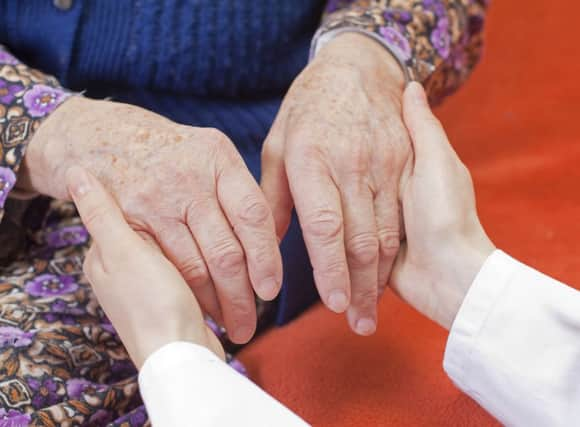Society has duty to give people power and freedom


The freedom to choose how we will live our lives opens the door to becoming citizens in our communities. The Austrian neurologist, Viktor Frankl, wrote that “a human being is a deciding being”. To participate as citizens, we must be free to make decisions. To make decisions, we must have choice.
The Scottish Government’s Self-directed Support Act was implemented in April. Underlying its provisions is the philosophy that every person should have choice and control over their own life.
Advertisement
Hide AdAdvertisement
Hide AdSociety has a duty to ensure everyone can participate on an equal basis but, in the past, people needing day-to-day support have too often had limited power to choose how their support is delivered. Limited control means a lack of opportunities to make decisions, and therefore unequal access to the benefits of community.
Self-directed support transfers power from local authorities and support providers to individuals. The act gives people who access social care the power to choose the kind of support they want, who they want to be supported by, and how their support will be delivered. Rather than being passive service users, people can demand to be treated as active and powerful citizens.
At CrossReach, we welcome this positive change. Throughout our 145-year history of offering social care and support to communities in Scotland, we have had many opportunities to adapt and innovate as the needs and demands of society have changed. Self-directed support gives us a fresh impetus to offer new services to the communities we work in.
For the individual, control over the design and delivery of support opens up a world of possibilities. From simple things like being able to choose what time your support worker comes to see you, to the freedom to attend a community art class or cinema club rather than a traditional support service, the power to choose enriches our lives. The people we work with at CrossReach who are already using self-directed support have found that gaining control over the support they get is a liberating, life-changing experience.
However, the power to choose is only half the story. Gaining control, but having limited options to exercise that control, is not true choice. To make the benefits of choice in social care a reality, we need a wide range of options to choose from.
Diverse, new ideas are vital in making choice real – more of the same will not satisfy the aspirations of people who are directing their own support. Organisations such as CrossReach – as part of the innovative, creative Third Sector – therefore have a crucial role to play in the success of self-directed support.
CrossReach began its work in 1869 as the Church of Scotland’s Committee on Christian Life and Work. Our organisation has experienced urbanisation and the aftermath of the Industrial Revolution, two World Wars and the establishment and continual reform of the welfare state. In a changing society, we have had to innovate to survive. CrossReach, along with the sector we work in, has learned to be flexible, adaptable, and to respond positively to change.
From the establishment of the Deaconess Hospital in Edinburgh in 1891, through to the continued development of our creative arts projects for people who have dementia today, CrossReach has a heritage of innovation which will be vital in the success of Self-directed Support.
Advertisement
Hide AdAdvertisement
Hide AdOf primary importance is that self-directed support benefits the people who use it. But it is also a fantastic opportunity for support providers like CrossReach, because the choice it demands is a fresh spur to be creative and innovative in the work we do. As support providers in the Third Sector, we must continue to be pioneers so we can play a part in offering the diversity of choice necessary for everyone to participate equally in their communities.
The freedom to choose how we will live our lives is an essential feature of our citizenship, and everyone must have equal access to this freedom. From now on, the Self-directed Support Act will play its part by extending the power to choose to everyone. We must now play our part by continuing our tradition of innovation and creativity, to ensure that choice in social care is made real for every citizen.
• Peter Bailey is chief executive officer of CrossReach www.crossreach.org.uk
SEE ALSO